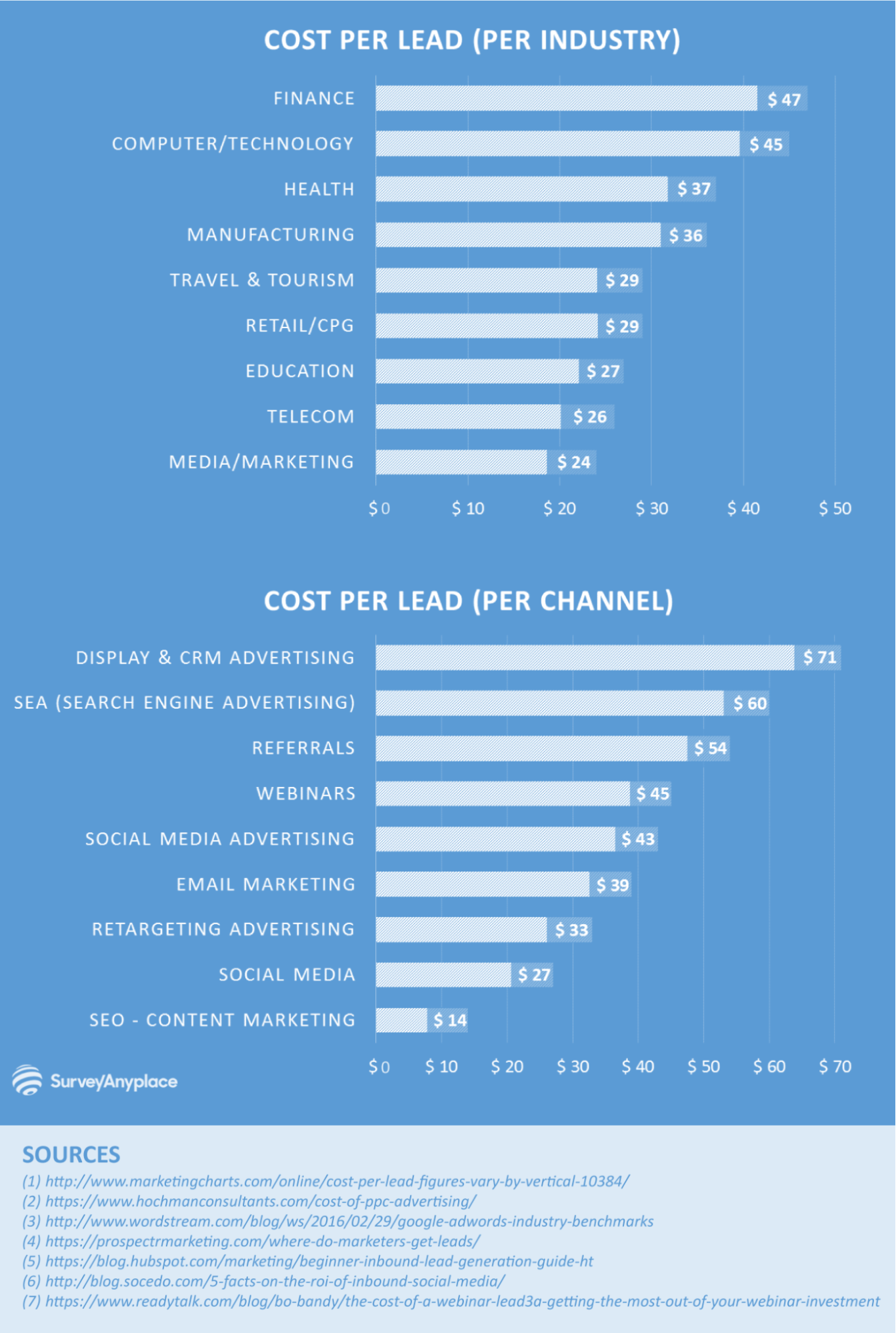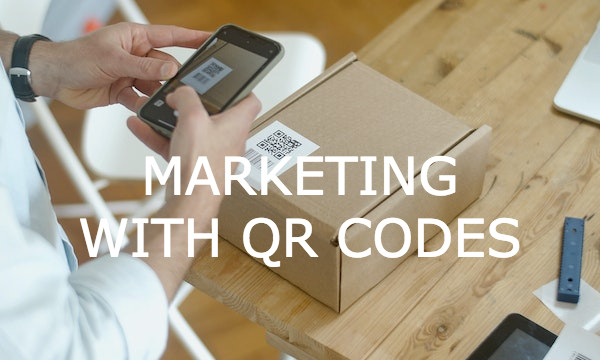In 2021, it’s essential to promote your business online.
After all, that’s where your customers probably are.
According to OptinMonster, it’s expected that by 2023, there will be 300 million online shoppers nationwide—representing over 90% of the U.S. population.
Even if your website isn’t categorized under the eСommerce umbrella, you’ll still need to connect with those tech-savvy customers in order to compete.
Perfecting your products or services is just one part of the equation. Developing an attractive and easy-to-navigate website is another.
But in order to bring traffic to your site and make consistent sales, you’ll also need to focus on lead generation.
There are seemingly endless ways to generate leads. For many marketers, however, the choice often comes down to two options: SEO or PPC.
In this article, Jeff Shipman, the Director of Marketing at Semify, covers the basics of search engine optimization, pay-per-click advertisements, and discusses why you might not actually have to determine which is “better” for your business.
Quick Links
Developing a Diverse SEO+PPC Strategy
Intro to SEO and PPC
It’s likely that you’re at least somewhat familiar with search engine optimization or pay-per-click ads (or maybe both!).
Even if you’ve never done anything with them as part of your marketing strategy, you’ve certainly seen these two techniques at work in your everyday life.
Search engine optimization, or SEO, can involve a number of different methods. But at its heart, it’s all about ensuring that both search engines and human visitors can easily find your website.
If you’ve googled a phrase and quickly found exactly what you were looking for, it’s likely that site optimization is at least partially to thank.
While SEO was once centered around manipulating search engines into displaying results that favored your website, Google’s search algorithm has become much more sophisticated in recent years. Now, Google is intent on delivering the most relevant and valuable content to web visitors.
That means SEO isn’t about building as many backlinks as possible or creating hundreds of landing pages filled with keywords. Instead, the goal of SEO is to provide value—and clear context for that value—so that it’s clear why your site should be rewarded with a great ranking.
If executed properly, your SEO strategy can position you as a trusted leader in your industry while driving organic traffic to your website over time.
Pay-per-click (PPC) ads, on the other hand, are meant to generate paid traffic.
These ads, which you’ve undoubtedly seen displayed near the very top of search engine results pages (SERPs), provide a different way for you to promote your business.
Instead of optimizing your website, you’ll target your ads to reach the right people at the right time.
We’ll get into the nitty-gritty details of each option below. But for now, you can think of SEO and PPC as two sides of the same coin. The question is: when flipping the coin, which side should you call?
Why SEO?
In the debate between SEO vs. PPC, it’s easy to understand why SEO consultation professionals are so passionate about what they do.
For one thing, today’s SEO strategies are focused on providing educational, entertaining, and useful content for web visitors. Rather than pushing a sale, it’s more about creating a connection between a brand and a customer.
By providing the practical solutions consumers are seeking, the hope is that those consumers will have a positive perception of the brand. While paid traffic does certainly have value (which we’ll discuss in the next section), that value is short-lived and won’t necessarily build brand trust with shoppers.
Of course, businesses also want to fare well in the eyes of Google. So if they’re creating content that answers questions, provokes conversation, and begets widespread sharing, it makes sense that their brand reputation and their search rankings would improve.
There are other reasons to ensure SEO is included in your marketing strategy. For one, SEO is known to be one of the most cost-effective lead generation tools available. As you’ll see in the chart below, SEO content marketing has the lowest cost per lead per channel out of the most popular options used by businesses.
SEO is incredibly affordable, making it a natural choice for small businesses looking to even the online playing field. What’s more, the investment you make in SEO today will pay off months or even years in the future.
That’s because SEO is meant to be a long-term strategy. While you won’t see results overnight with SEO, you’ll typically experience a much more natural rise in brand visibility, traffic, and conversions over time. And even if you stop optimizing your site later on, you can still reap the benefits because your optimizations will remain intact (and keep building!).
It’s also important to consider the value of organic traffic. Because customers often tune out ads, they’re looking for quick solutions that don’t involve a heavy sales pitch. Even if a web user who finds your site isn’t completely ready to make a purchase, you can achieve other marketing goals by optimizing your site and improving your search rankings.
SEO is an excellent choice for those who are operating with a limited budget, who are looking to increase their long-term return on ad spend (ROAS), and who want to prove their authority to web users in every stage of their buyer’s journey.
That said, SEO isn’t the only way to spend your marketing dollars. Let’s segue into pay-per-click advertising and why it’s worthy of your consideration.
The Perks of PPC
PPC ads may not be as visually enticing as display ads, but they can yield some pretty extraordinary results—especially if you’re in a time crunch.
Although you’ll probably end up spending more to run a PPC ad campaign than you would to optimize your website, you’ll be able to see results in a much shorter period of time. That’s crucial if your business needs to promote a new product or a limited-time offer.
It also helps that PPC ads actually appear first before any organic results. While they are marked as ads, many web searchers don’t realize that those sites are paying for that prime real estate. This means they’re more likely to be clicked than organic results that appear below the fold.
PPC also allows for more precise targeting than SEO. While you can bid on keywords with PPC (in a similar way to optimizing for keywords with SEO), you can also segment your audience further based on age, location, and a host of other factors. You can even select the specific time of day to run your ads or ensure they aren’t displayed to certain people based on context.
PPC ads can provide you with additional insights, especially in terms of testing. You’ll be able to run more than one ad at the same time to assess which is more effective. This can allow you to adjust your strategy quickly for better results, which is much harder to do with SEO.
In the end, PPC provides speed, great feedback, and granular control. It’s ideal for businesses that need results fast or who are looking to appear before a more specific audience. However, that doesn’t mean it’s inherently better than SEO.
SEO Vs. PPC: Which is Better?
If you were looking for a quick and clear answer to the SEO vs. PPC argument, we’re going to have to disappoint you.
The honest answer to this question is: it depends.
If you feel the need to choose between SEO and PPC, it’s important to first determine your goals and your priorities.
Your decision will probably depend on:
- Budget
- Goals (clicks, sales, brand awareness)
- Time allotted
For time-sensitive promotions with a less restrictive budget, PPC may be a good choice. But if you’re looking to provide value over time and have only a small marketing budget, SEO might be the way to go.
However, there is a third option—and it doesn’t involve an “either/or” decision.
PPC Automation for Small Businesses: How to Do it the Right Way
Developing a Diverse SEO+PPC Strategy
If you’ve ever invested in the stock market, you probably understand the idea of diversification. Putting all your eggs in one basket isn’t recommended; you’ll instead want to split up your investments into different areas to protect you and to increase your potential profitability.
It’s the same with your marketing and advertising strategy. Your efforts will be far more successful if you’re able to cover all your bases. That way, you won’t have to panic if Google updates its algorithm or if you have to scale back on paid ads.
What’s more, PPC and SEO actually complement one another. They’re essentially opposites in the way they operate, so using them together is really smart.
You can use SEO behind the scenes to build awareness and traffic over time while keeping costs low. At the same time, you can run PPC ads to increase your conversions quickly or gain insight into the most effective way to reach your customers.
Using a combination of SEO and PPC will strengthen your strategy. Taking a more holistic approach to your promotional tactics will make for a healthier growth plan overall.
Choosing the right marketing or advertising avenue isn’t always easy. But sometimes, you don’t actually have to choose. If you have the ability to commit to both SEO and PPC, your business will be all the better for it.
Make the most of your PPC campaigns with PromoNavi! Save time managing your Google, Microsoft, and Facebook Ads accounts within a single platform and get profitable insights to boost your KPIs.
Get started with a 14-day trial with unlimited access to all the features!


